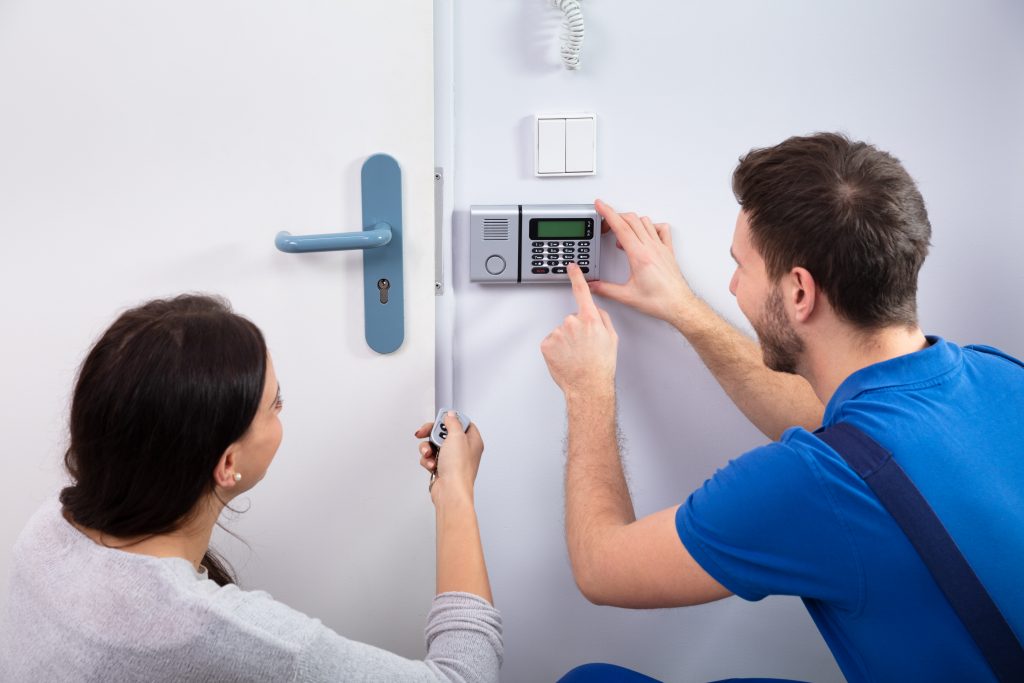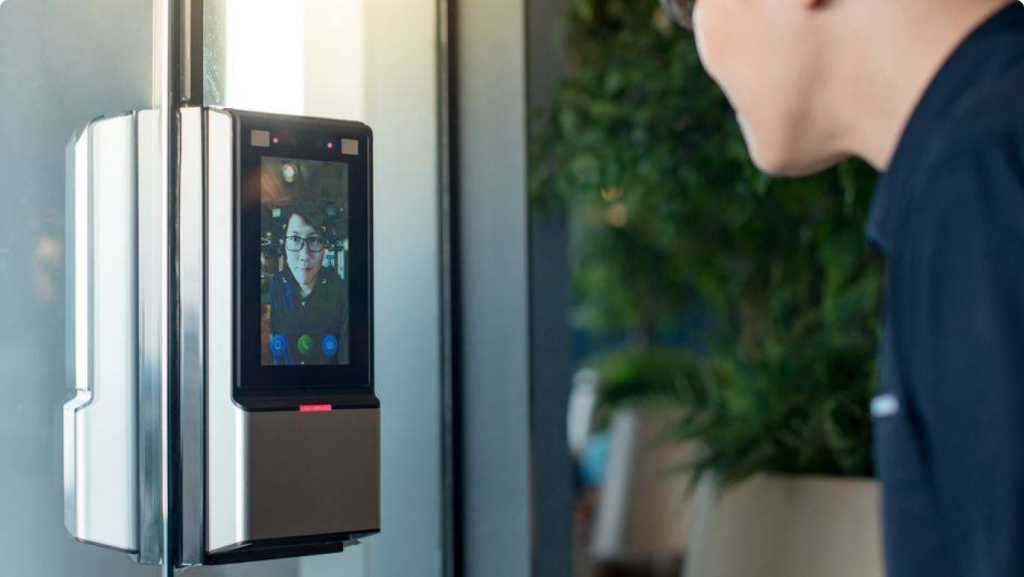Biometric Access Control Systems – are they suitable for your business?
Access control systems are a simple yet effective method of preventing unwanted entry to a building or room.
Traditionally, access control systems use passwords or key cards to control who is granted access and who is not. However, in recent years, there has been a huge shift towards biometric systems due to advances in technology.
What is Biometric Access Control?
Biometric access control is a type of access control system that determines a person’s identity based on their biological attributes. This can include physical, chemical or behavioural attributes that are unique to every individual.
Biometric systems are more reliable than traditional systems as they do not rely on passwords or key cards that can be forgotten, lost or stolen. This means they are more secure, hence why they are favoured by high security businesses.

How Do Biometric Access Control Systems Work?
Biometric access control systems work using pattern recognition technology. They are commonly made up of a sensor, a quality assessment unit, a feature comparison and matching unit and a database.
The sensor and quality assessment unit scan the user’s biological data and check the data is detailed enough to use against the information stored in the database. The feature comparison and matching unit then searches the database for a match to the user’s data using an algorithm. If a match is found, the user is granted access however if there is no match, the user cannot enter.
Often, people worry about the security of storing biological data and its implications on personal privacy. All modern biometric access control systems use a combination of algorithms and a one-way encryption system so the data stored cannot be used to identify the users.
What Kind of Systems are Available?
There are lots of different types of biometric access control systems available. Every day examples include fingerprint and face identification that can be seen in smartphones.
Less common biometric access control systems include voice recognition, iris scanning and vein mapping. While they are not as widely available, these methods are more reliable as they don’t change over time.

What Industries are Biometric Access Control Systems Useful For?
Every industry can benefit from the use of access control systems. Whether you want to improve the security of your office building or restrict access to a high security area, access control is an ideal solution.
Access control isn’t only beneficial for security purposes, it provides real time data about who is on your premises. This means you have an accurate register in the event of an evacuation, ensuring the safety of everyone in the building.
A Partner That Helps You to Meet Your Requirements
At TIS we are experts at securing what matters. We work with you to design an access control system that integrates with your current security systems and meets your requirements.
If you have any questions about biometric access control and would like to find out more about our smart, integrated fire and security solutions, get in touch with our team today.
Latest news
Why real compliance isn’t a checkbox – it’s a board-level superpower
It’s time to change the conversation – from compliance as a constraint, to compliance as a strategic advantage.
Why the cheapest option can be a step backwards for compliance, safety and service
Everyone promises low prices and claims to hit the brief. But is going with the lowest bidder always the smartest choice?








